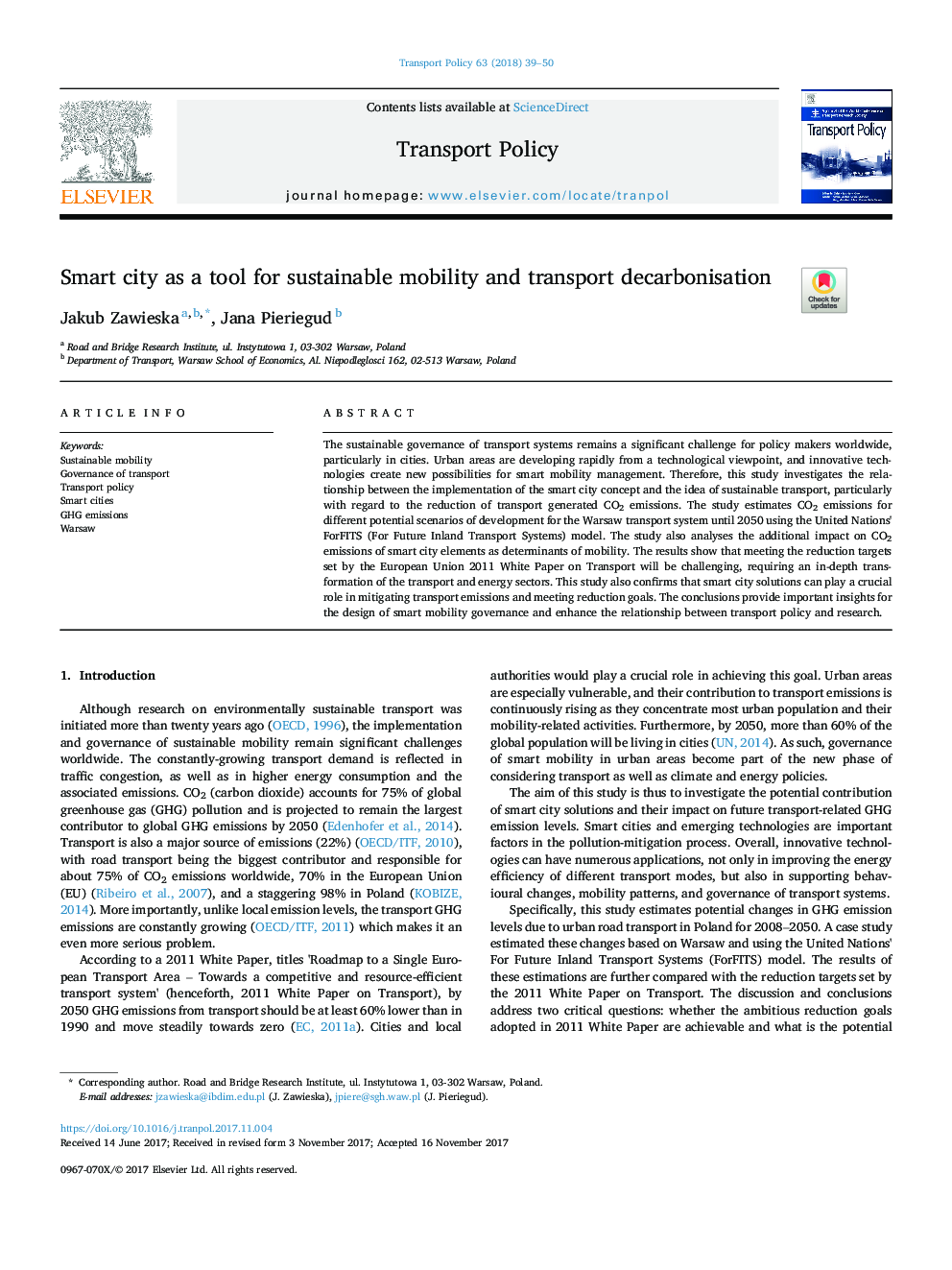| Article ID | Journal | Published Year | Pages | File Type |
|---|---|---|---|---|
| 7497179 | Transport Policy | 2018 | 12 Pages |
Abstract
The sustainable governance of transport systems remains a significant challenge for policy makers worldwide, particularly in cities. Urban areas are developing rapidly from a technological viewpoint, and innovative technologies create new possibilities for smart mobility management. Therefore, this study investigates the relationship between the implementation of the smart city concept and the idea of sustainable transport, particularly with regard to the reduction of transport generated CO2 emissions. The study estimates CO2 emissions for different potential scenarios of development for the Warsaw transport system until 2050 using the United Nations' ForFITS (For Future Inland Transport Systems) model. The study also analyses the additional impact on CO2 emissions of smart city elements as determinants of mobility. The results show that meeting the reduction targets set by the European Union 2011 White Paper on Transport will be challenging, requiring an in-depth transformation of the transport and energy sectors. This study also confirms that smart city solutions can play a crucial role in mitigating transport emissions and meeting reduction goals. The conclusions provide important insights for the design of smart mobility governance and enhance the relationship between transport policy and research.
Related Topics
Social Sciences and Humanities
Social Sciences
Geography, Planning and Development
Authors
Jakub Zawieska, Jana Pieriegud,
